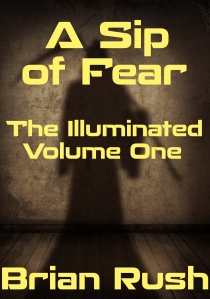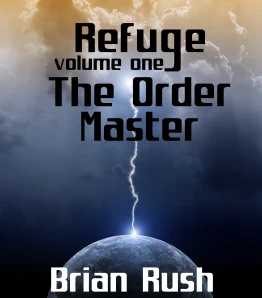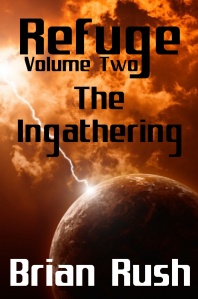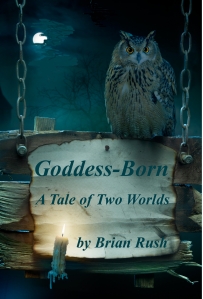 The 1860 election was an oddity, similar in key aspects to the 1912 election, but with far grimmer consequences. That year, the Republican Party ran its second presidential candidate, Abraham Lincoln. Lincoln was, for a Republican, moderate on the issue of slavery. He opposed it, but proposed no actions against it except a pledge that all new states created under his watch would be free states.
The 1860 election was an oddity, similar in key aspects to the 1912 election, but with far grimmer consequences. That year, the Republican Party ran its second presidential candidate, Abraham Lincoln. Lincoln was, for a Republican, moderate on the issue of slavery. He opposed it, but proposed no actions against it except a pledge that all new states created under his watch would be free states.
Despite this, his candidacy provoked fury in the South. He would probably have lost the election with a respectable showing, as John C. Frémont had in 1856, except that the Democratic Party split in two that year, with two nominating conventions presenting two candidates for the White House. This happened when Southern delegates walked out of the Democratic National Convention — twice — over a refusal to adopt a plank that would have forcibly extended slavery into territories where the inhabitants voted against it. Eventually, the pro-slavery Democrats held their own convention and nominated their own candidate.
It’s been suggested that the fissure in the party was deliberately intended to throw the election to Lincoln, in the hope of provoking secession. Certainly the demand that slavery be extended where it wasn’t wanted was a radical proposal and violated the concept of popular sovereignty, of democracy itself, and the ideals on which the United States was ostensibly founded, but then, so did slavery and so does the entire authoritarian culture of the South. Whether this conspiracy theory is correct or not, the outcome is clear enough. Lincoln won a majority of the Electoral College with a plurality but not a majority of the popular vote.
While the 1860 election resembled the 1912 election in this respect, it more closely resembles the 2008 election in its aftermath, but again, the consequences were far more dire. Between Lincoln’s election and his inauguration, seven Southern states seceded from the United States. These states came together and formed the Confederate States of America, adopting a constitution almost identical to that of the United States, but with three significant changes, two of which showed the nature of Southern society. One of these changes was to protect slavery from interference by either the Confederate government or any state government. A second was a change to Article I, Section 8 of the U.S. Constitution which enumerates the powers of Congress. In the U.S. Constitution, that clause reads in pertinent part:
The Congress shall have Power To lay and collect Taxes, Duties, Imposts and Excises, to pay the Debts and provide for the common Defence and general Welfare of the United States . . . To regulate Commerce with foreign Nations, and among the several States, and with the Indian Tribes;
The Confederate Constitution altered this to read:
The Congress shall have power To lay and collect taxes, duties, imposts, and excises for revenue, necessary to pay the debts, provide for the common defense, and carry on the Government of the Confederate States; but no bounties shall be granted from the Treasury; nor shall any duties or taxes on importations from foreign nations be laid to promote or foster any branch of industry . . . To regulate commerce with foreign nations, and among the several States, and with the Indian tribes; but neither this, nor any other clause contained in the Constitution, shall ever be construed to delegate the power to Congress to appropriate money for any internal improvement intended to facilitate commerce; except for the purpose of furnishing lights, beacons, and buoys, and other aids to navigation upon the coasts, and the improvement of harbors and the removing of obstructions in river navigation;
In this change we see reflected the fact that the South held to the paradigm of agrarian civilization (minus monarchy and hereditary nobility, but I would say only because the United States forbade both and the South had become used to that situation). All government efforts to spur industrialization were forbidden, except those that facilitated the moving of cash crops to market.
(The third significant difference between the two was that the Confederate Constitution limited the president to a single six-year term.)
The Civil War
While the secession of the South is understandable given the economic and political realities, a much greater mystery is presented by the attack on Fort Sumter. Lincoln would have faced popular opposition to using force to restore the Union otherwise. Why provoke a war that, given the realities of manpower and industrial capacity, the Confederacy was almost sure to lose? Again one is tempted to conspiracy hypotheses, but in fact the action may be adequately explained by hot-headed stupidity and that’s more likely what happened. Foreign countries have sometimes made this mistake about American character, misunderstanding the swiftness with which opposition to war can turn to fervent support after the nation is attacked. The South had no excuse, but made the same error — which once again points up how foreign that region of the country is to the rest of the United States.
After the attack on Fort Sumter, Lincoln summoned and federalized the militias of the loyal states and planned an invasion of the South to restore the Union. This action provoked the secession of four more states and began the most gruesome war in U.S. history. The final death toll from the war was more than 600,000 on both sides, meaning that America lost at least twice as many people in the Civil War as in World War II, from a much smaller population base. The Confederacy did surprisingly well, likely because the military tradition of the Southern quasi-aristocrats meant that the best military leadership of the United States was Southern and joined the rebellion, but in the end, inevitably, the Union won.
During the war, with the Southern Senators and Representatives absent, Congress passed measures promoting industrialization that had been blocked by the South up to then. The building of the trans-continental railroad, the creation of a new national banking system, the Morrill Tariff, and the Homestead Act all emerged during this time. Again we see that the conflict between the South and the rest of the nation was one between an agrarian economy and an industrial capitalist economy, with slavery the fulcrum of the conflict and the moral flash point.
Reconstruction
After the war, the United States added three hugely important amendments to the Constitution. The 13th Amendment abolished slavery. The 14th Amendment guaranteed equal protection under the law regardless of race, defined all persons born or naturalized here as U.S. citizens, and extended the protections of the Bill of Rights to cover actions by state governments. The 15th Amendment guaranteed the right to vote regardless of race or “previous condition of servitude.” These amendments together with the government’s reconstruction policies sought nothing less than the eradication of the South as a separate culture and its assimilation to the rest of the United States.
It was an ambitious goal that could not succeed, or not within a reasonable time frame. In the end, the Southern elite adjusted to their loss of the war and implemented laws and economic structures that preserved the authoritarian, racially stratified culture of the South despite the end of slavery. The former slaves were kept bound to forced labor by economic arrangements amounting to a kind of serfdom. Their right to vote was curtailed by a mix of Byzantine restrictive laws and clandestine terror.
One thing needs to be clearly understood. The Civil War was fought over slavery, but if the North-South conflict had only been about slavery, it would have ended with the passage of the 13th Amendment outlawing the practice. Having lost the war and lost the slaves, the planter interests would have faded away and the South would have become just like the rest of America. That didn’t happen. Slavery was a large part of what created the authoritarian culture of the Confederacy, but it exists independently of that institution and encompasses much more.
Slavery as such was gone. The hold of the South on the federal government was also gone. The industrialization of the country outside the South proceeded at a rapid pace. By the end of the 19th century, the United States had become a first-tier economic power. The South, however, languished behind, as the entrenched planter interests maintained their grip on power and preserved, as best they could, the agrarian character of the South. While in the 20th century the United States for the most part entered the classic dispute between capitalist and socialist ideas and between owners and the working class, the South stayed stuck in a pre-capitalist condition and acted as a drag weight on the nation’s evolution.
The South and 20th Century Politics
The Democratic Party remained the party of the South after the Civil War, which cost it dearly in power over the national government. Between the presidential election of 1868, won by Republican Ulysses S. Grant, and that of 1928, won by Republican Herbert Hoover, Democrats won the White House exactly four times. Grover Cleveland, a Northern Democrat (from New York) who was indistinguishable from conservative Republicans apart from the party label, won a razor-thin victory in 1884 against a weak GOP candidate, lost his reelection bid in 1888, and barely won a second term in 1892. Woodrow Wilson was the beneficiary of the 1912 election anomaly mentioned above; that year, it was the Republicans who split, with former president Theodore Roosevelt running on a third-party ticket against both Wilson and the GOP nominee, President W.H. Taft. With Roosevelt and Taft splitting the Republican vote, Wilson was able to win an Electoral College majority on a popular vote plurality. He won reelection in 1916 on an implied promise to keep America out of World War I, a promise he did not keep.
Through all this time, the South used its limited influence over Congress to protect its culture and institutions from federal encroachment and prevent effective enforcement of the 14th and 15th Amendments in the South.
The Great Depression began a process that would change all of that. The Depression was capitalism’s great failure and fostered a move towards socialism. Because the Republicans at that time were committed to capitalism and unable to make the necessary changes, it fell to the Democrats to seize the political opportunity, which happened of course under the leadership of Franklin Roosevelt. Roosevelt put together a new political coalition capable of winning national elections, something Democrats had been denied for decades. That coalition included labor, women, and minorities — as well as the white South. As with many political alliances, this one featured strange bedfellows.
The alliance held together through the Depression and World War II, but began to come apart after the war. President Truman’s executive order desegregating the armed services in 1948 started the ungluing. The passage of the Civil Rights Act in 1964 in a Democratic Congress and its signature by a Democratic president (from the South, no less) finalized it. The South was up for grabs after that. But in order to grab it, the Republican Party had to adopt positions that violated its founding principles and the stance for racial equality that had defined the party from inception.
It did. And that brings us to the position we are in today, with the neo-Confederates having swallowed the Party of Lincoln in one of the most ironic hostile takeovers in history. The Confederacy is using that power in an attempt to demolish the United States government from within.
Next week: The American South (Part III), about the approaching demographic demise of the Confederacy as a separate subculture, and its desperate attempt to take the United States with it to oblivion.








